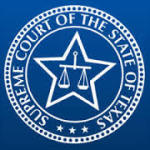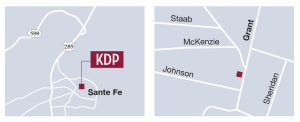NEWS
Congratulations to Rose Walker attorneys, Marty Rose and Chris McDowell, and their client, ThermoTek, who–along with the support of Thad Spalding–obtained a $7.5M jury verdict on November 20, 2015 following a three-week trial in a Federal District Court in Dallas. ThermoTek, who was originally sued by the Defendants, defeated the Defendants’ claims and successfully pursued its own claims for fraud and unfair competition when those Defendants convinced ThermoTek to make them distributors of ThermoTek’s medical device and then used that relationship to improperly create their own, nearly identical, product and use that product to unfairly compete with ThermoTek. A Law360.com article regarding the case can be found here.
Congratulations to Peter Kelly who, on November 19, 2015, successfully convinced the Corpus Christi Court of Appeals to affirm a trial court’s order refusing to dismiss his client’s case pursuant to Chapter 74 of the Texas Civil Practice and Remedies Code–the Texas Medical Liability Act. The client, a housekeeper, sued her employer, Corpus Christi Medical Center, for injuries she suffered when she was assigned by the Medical Center to a task that required her to lift very heavy items, a task that was not part of her normal duties. The Corpus Christi Court of Appeals refused to find that Ms. Martinez’s claim was a health care liability claim and, thus, Chapter 74 did not apply. You can find a copy of the court’s opinion here.
Congratulations to Kirk Pittard who successfully defended a trial court’s order requiring that State Farm of Lloyds produce electronically-stored information in the native format in which such information is usually kept. State Farm sought mandamus relief, but the Corpus Christi Court of Appeals concluded that mandamus relief was not warranted and required that State Farm produce the information in its native or near native format. You can read the opinion here.
KD&P and Houston partner, Peter Kelly, are honored to have worked with lead counsel Jim Lewis on an amicus brief in the Texas Supreme Court on behalf of Aid to Victims of Domestic Abuse (a United Way Agency) and the Texas Trial Lawyers Association, asking that the court reverse a lower court opinion that held that a female employee who was violently sexually assaulted by her supervisor in her workplace bathroom is limited to the same administrative remedies as a victim of non-violent, non-physical sexual harassment or discrimination. A copy of that brief can be found here.
Congratulations to KD&P partners Peter Kelly, Kirk Pittard, Leighton Durham, and Thad Spalding who were all named “Super Lawyers” in the Appellate category by Thomson Reuters and the publishers of Texas Monthly magazine. A special congratulations to Peter Kelly for also being named among the Houston region’s Top 100 lawyers overall.
who were all named “Super Lawyers” in the Appellate category by Thomson Reuters and the publishers of Texas Monthly magazine. A special congratulations to Peter Kelly for also being named among the Houston region’s Top 100 lawyers overall.
Congratulations to Peter Kelly and Will Adams for their successful defense of a judgment in excess of $800,000 in a nonsubscriber case against a negligent employer. Peter and Will defeated nearly all of the employer’s factual and legal sufficiency arguments regarding the liability and damage findings, as well as arguments related to the exclusion of certain evidence, improper jury argument, and charge error. Most notably, however, the court of appeals refused to reduce the medical expenses awarded under the “paid or incurred” statute based on the medical providers’ sale of the injured party’s medical bills to a medical factoring company. You can read the court’s opinion in Katy Springs & Mfg., Inc. v. Favalora here.
Congratulations to Morgan McPheeters who won her first appeal in the Fort Worth Court of Appeals! Morgan successfully upheld a default judgment in favor of a personal injury plaintiff, where the defendant attempted to challenge the judgment through a bill of review more than four years after the judgment was entered, claiming extrinsic fraud in the manner in which substituted service was executed. You can read the court’s opinion here.
Congratulations to Peter Kelly who convinced the Fourteenth Court of Appeals in Houston to affirm a $1.1 million judgment obtained by Jason Gibson and Andrew Smith against Kroger following an incident in which a meatcutter lost four fingers on his dominant hand.
Among other issues on appeal, Kroger argued that its duties should be limited to those owed by premises owners to invitees–meaning no duty to train or supervise, hire competent co-employees, provide appropriate instrumentalities, etc. The court rejected that argument based on the Supreme Court’s recent opinion in Austin v. Kroger. Kroger also argued that the trial court erred in admitting certain photographs taken by the plaintiff after he returned to work, claiming that the pictures were thus the result of a criminal trespass and thus inadmissible under the exclusionary rule. The court rejected this argument as well. You can find a link to the opinion here.
 Congratulations to Partner, Peter Kelly who has been appointed to a second three-year term on the Texas Supreme Court Advisory Committee. Currently comprised of 46 judges, former judges, and practitioners, the Committee assists the Supreme Court in the continuing study, review, and development of rules and procedures for the courts of Texas, taking into consideration the rules and procedures of other courts in the United States and proposals for changes from whatever source received. The Committee drafts rules as directed by the Court; solicits, summarizes, and reports to the Court the views of the bar and the public on court rules and procedures; and makes recommendations for change.
Congratulations to Partner, Peter Kelly who has been appointed to a second three-year term on the Texas Supreme Court Advisory Committee. Currently comprised of 46 judges, former judges, and practitioners, the Committee assists the Supreme Court in the continuing study, review, and development of rules and procedures for the courts of Texas, taking into consideration the rules and procedures of other courts in the United States and proposals for changes from whatever source received. The Committee drafts rules as directed by the Court; solicits, summarizes, and reports to the Court the views of the bar and the public on court rules and procedures; and makes recommendations for change.

